MercoPress. South Atlantic News Agency
Tag: Ollanta Humala
-
Friday, July 29th 2011 - 06:47 UTC
Peruvian president Humala promises economic growth with social inclusion
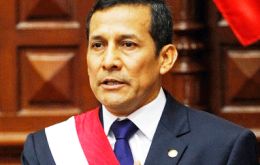
Peru's incoming President Ollanta Humala promised on Thursday the poor would take part in the country's economic boom, investors and their contracts would be respected and changes will be moderate and gradual.
-
Thursday, July 28th 2011 - 11:14 UTC
Humala takes office in Peru with a balancing act on promises and the cabinet
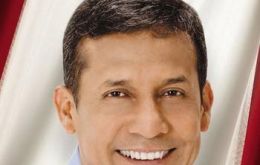
Former nationalist military officer Ollanta Humala will take office next Thursday as the next president of Peru, one of the fastest growing economies in the world but with almost half the population living in poverty.
-
Thursday, July 28th 2011 - 11:04 UTC
Peruvian president counts with the support of 68 out of 130 benches in Congress

A working alliance of 68 members in the one-chamber Congress of 130 benches will be supporting the government of Peruvian president-elect Ollanta Humala who is to be sworn in on Thursday 28 July.
-
Thursday, July 28th 2011 - 11:00 UTC
All South American presidents, except Chavez and Lugo, present in Lima
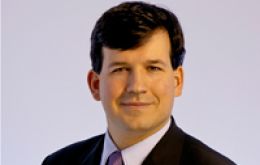
All South American presidents with the exception of Venezuela’s Hugo Chavez under chemotherapy treatment, and Paraguay’s Fernando Lugo, who cancelled at last moment following medical instructions, will be present at Thursday swearing in ceremony of Peruvian president-elect Ollanta Humala.
-
Wednesday, July 27th 2011 - 01:13 UTC
UNASUR leaders to meet in Lima following Humala’s taking office ceremony
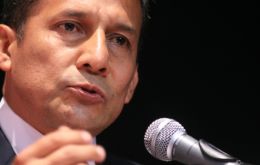
The twelve leaders of UNASUR (Union of South American Nations) will be meeting in Lima, Thursday following on the taking office ceremony of Peruvian president Ollanta Humala. All twelve presidents have confirmed attendance with the exception of Venezuela’s Hugo Chavez undergoing cancer treatment.
-
Thursday, July 21st 2011 - 23:57 UTC
Peruvian president-elect names orthodox pro-business in key cabinet posts
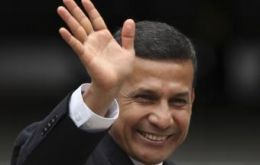
Peruvian President-elect Ollanta Humala picked more moderates for his Cabinet on Thursday as he tries to reassure investors he will govern as a centrist in one of the world's fastest-growing economies.
-
Thursday, July 21st 2011 - 01:40 UTC
Humala seems ready to accept Peruvian economy is robust and on the right track
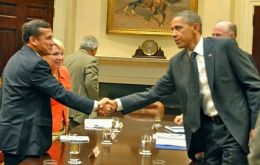
In a week’s time Ollanta Humala takes office in Peru as president for the next five years.
-
Wednesday, July 6th 2011 - 22:35 UTC
Peruvian president-elect promises full support for a ‘strengthened’ OAS
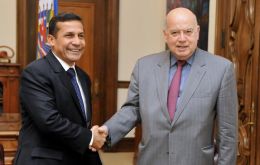
Peruvian president elect Olland Humala said on Wednesday he wants a “strengthened” Organization of American States, OAS, because Peru “fully supports the organization”. Humala is currently visiting United States where he was also scheduled to meet with Secretary of State Hillary Clinton and President Barack Obama.
-
Monday, July 4th 2011 - 23:17 UTC
Peruvian president-elect will meet Obama and Clinton in Washington
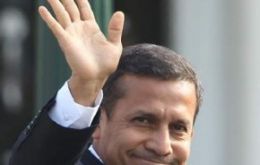
Peruvian president-elect Ollanta Humala will be meeting next Wednesday President Barack Obama and Secretary of State, Hillary Clinton. Humala is expected in Washington on Tuesday.
-
Wednesday, June 22nd 2011 - 23:47 UTC
Humala invites Morales to consider the re-unification of Peru and Bolivia
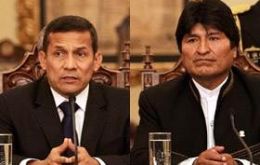
Peruvian president elect Ollanta Humala invited his Bolivian peer Evo Morales to consider bilateral integration, in which both countries would unite into a confederation as happened between 1836 and 1839.
